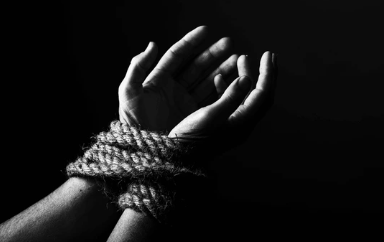Girls and women in parts of the Greater Pibor Administrative Area (GPAA) and Jonglei State have decried a lack of security and protection amidst rising cases of kidnapping by armed assailants.
In South Sudan, especially the troubled region of Greater Jonglei and surrounding areas, child abduction is not a new phenomenon. The practice has been prevalent for decades and continued unabated, with children, especially girls, being victims. Recently, however, the practice appears to have evolved with girls of marriageable age being the target.
A cross-section of people interviewed by Radio Tamazuj decried the lack of protection. Most said the prevailing economic hardships have taken a big toll on girls and women who are abducted for financial gain.
Articles 14 and 13 of South Sudan’s constitution stipulate that all persons are entitled to equal legal protection without discrimination based on race, ethnicity, sex, religion, or social status, and that no person shall be held in slavery or servitude.
A girl in Nyirol, who identified herself only as Sunday, said she feels neglected.
“This practice of child abduction has been common for years, even before we were born. In the past, women or children were only abducted during cattle raids,” she stated. “However, girls are now abducted while on their way to school or visiting relatives, often for economic gain.”
Another girl in Pochalla, Bereb John, appealed for better safety while trying to access services.
“Girls are abducted while trying to access services elsewhere. I appeal that schools be brought closer to us to eliminate the risk of abduction. Better still, boarding schools should be introduced for girls in Pochalla,” she urged. “Additionally, movement is inevitable, so the government should deploy security forces everywhere to provide protection.”
Several girls have been abducted in Jonglei State and GPAA recently. In Pochalla, four girls were abducted while on their way to neighboring Ethiopia to sit exams. The latest incident occurred just last week when a groom was shot dead and his bride abducted in a road ambush in Jonglei’s Duk County.
Sabra Obang faults the government’s inaction for the rising abduction cases.
“A girl is taken and married off to raise income, yet abductors roam freely in enjoyment. Government is quiet while families are suffering,” he stated. “Parents are stressed that their girls get abducted while being sent to school. This is a dangerous trend.”
Meanwhile, Kenya Mach, a civil society activist and secretary with the Jonglei State Women Association, said child abduction remains commonplace and condemned it as a human rights violation.
“Child abduction is common in Jonglei State and GPAA, with a new trend seeing the kidnapping of marriageable girls, as evidenced by the recent abduction in Pieri Town,” she stressed. “This constitutes a gross human rights violation that should be addressed.”
The activist urged government intervention, echoing an outcry over the government’s inaction.
“We are humans like men, not resources. Civic education is needed for men to understand that women and girls are not resources, but partners in all aspects of life, including education and leadership,” Mach underscored. “If it is a question of resources, then there is a need to empower these idle young men with vocational skills and capital for self-sustenance.”
For his part, Simon Manyok Deng, the human rights advisor in the Jonglei State government, said abduction is a harmful practice, a degrading of human dignity, and urged dialogue.
“Abduction has been existing for decades, dating back to the 1940s. However, with social evolution, these practices have taken a new shape—girls are abducted to make money,” he explained. “There is a need for dialogue so that abductors understand that such acts are unlawful and could attract severe punishment. This dialogue should be accompanied by youth economic empowerment.”
“Finally, there is a need for legal enforcement by deploying more security forces,” Manyok added.
Dau Akoi, a Juba-based lawyer, appealed that legal tools be enforced as a deterrent.
“According to the Panel Code Act and Child Act of 2008, abduction is a form of human trafficking and is punishable even by international laws,” he stated. “There is a need for enforcement of laws because the abductors themselves know abduction is a crime. Otherwise, they would not hide if they think it were a normal practice.”




